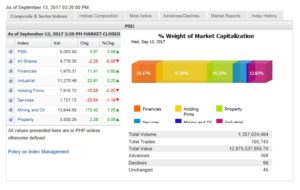American senior executives polled in a recent survey expressed plans to expand their business operations in the Philippines this year as their “level of confidence” was considered among the highest in the Asean despite seeing a slight decline from a year ago.
According to the Asean 50th anniversary edition of the 2018 Asean Business Outlook survey, 70 percent of respondents in the American Chamber of Commerce of the Philippines Inc. (AmCham) were planning business expansions this year, a slight decline from 74 percent a year ago. This was higher than the average for the whole Asean of 62 percent.
“The survey results for the Philippines saw 70 percent of AmCham Philippines respondents planning to expand their operations in the Philippines. This level of confidence was among the highest in the 10 Asean economies and the same as Vietnam (72 percent) and Myanmar (71 percent),” AmCham Philippines Executive Director Ebb Hinchliffe said.
Also, only a few US senior executives based in the Asean think of the Philippines as an attractive bilateral FTA partner as the country was overshadowed by the potential of other countries in the region.
“With the US placing less focus on multilateral trade agreements in favor of bilateral trade agreements, surveyed executives point to Vietnam (56 percent), Indonesia (50 percent) and Thailand (46 percent) as the most attractive potential bilateral FTA partners. Executives also pointed to non-Asean countries such as Japan (41 percent) and India (40 percent) as desirable FTA options,” a copy of the report read.
The Philippines was third to the last on the list, with only 23 percent of respondents thinking of the country as an FTA partner of the US. New Zealand was behind the Philippines with 14 percent, while last place (10 percent) was attributed to “other” countries.
This comes as the Department of Trade and Industry assesses the costs and benefits of forging an FTA with the US, which, even without an FTA, was the country’s third-largest trading partner in 2016.
With the US leaving the Trans-Pacific Partnership (TPP), 48 of respondents across Asean expected their country of operation to deepen bilateral ties with China.
More so, 84 percent of Asean-based respondents, the same as the Philippines, said that they were not affected by the “new directions of US trade and tax policy,” a reference to Trump’s America first rhetoric.
Philippine-based respondents were least satisfied with the current tax structure among other aspects of the local business environment. After the tax structure, investors in the country were also least satisfied with the new incentives offered by the government and the state of corruption.


